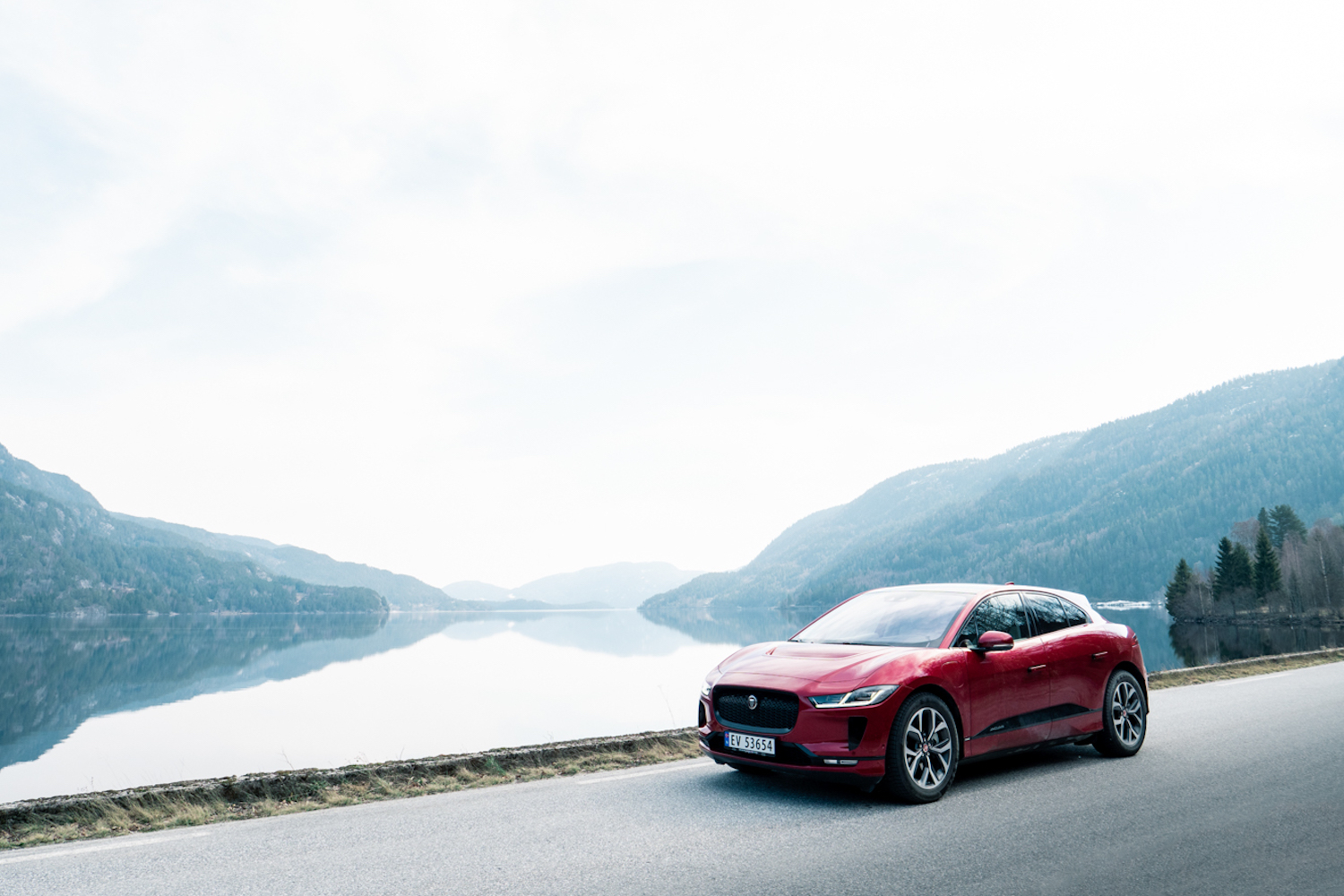Jaguar was partnered with the city of Oslo to develop the world's first electric taxi rank with a high-speed wireless charging setup.
Norway wants all-EV taxis by 2024
It's all part of a project called ElectriCity, which will see Norway's entire national taxi fleet switched over to electric by 2024. Jaguar has teamed up with Nordic taxi operator Cabonline (NorgesTaxi AS), the region's largest charge point operator Fortum Recharge, US technology developer Momentum Dynamics and the City of Oslo to build wireless, high-powered charging infrastructure for taxis in the Norwegian capital.
The project is said to be the first wireless high-speed charger dedicated to taxi use, and has been developed because Norway saw a - pretty obvious, when you think about it - need for taxis to be able to quick-charge while waiting for their next fare.
Jaguar Land Rover will provide 25 Jaguar I-Pace models to Cabonline, the largest taxi network in the Nordics, and all will be modified to be able to accept a wireless charge. A team of engineers and technicians from both Momentum Dynamics and Jaguar Land Rover were engaged to help in testing the solution, and Cabonline signed up to operate the fleet as part of Oslo's ElectriCity programme.
50 to 75kW charging speeds
The team is installing a number of wireless charging points at cab ranks across Oslo, and each one is rated to deliver a charging speed of between 50 and 75kW. Each taxi will sit on the charger for between six and eight minutes between call-outs, it's reckoned. The idea isn't for an I-Pace taxi to get a full charge, but just a quick top-up each time, keeping the battery at a reasonable level of charge throughout the working day.
Prof Sir Ralf Speth, Jaguar Land Rover Chief Executive, said: "We're extremely proud of our track record in electrification and we're committed to making electric vehicles easier to own and use. The taxi industry is the ideal test bed for wireless charging, and indeed for high-mileage electric mobility across the board. The inherently safe, energy efficient and high-powered wireless charging platform will prove critical for electric fleets, as the infrastructure is more effective than refuelling a conventional vehicle.
Destination Zero
"We're delighted to be part of ElectriCity and to continue to lead the field in electric vehicle technology. This is a great step forward to reaching our Destination Zero mission - a future of zero emissions, zero accidents and zero congestion."
Arild Hermstad, the City of Oslo's Vice Mayor for Environment and Transport, said: "We're delighted to welcome private enterprises to help us to turn our vision into reality.
"As part of our commitment to reducing emissions by 95 per cent before 2030, we have put many exciting measures in place, but transport continues to be a key challenge. By improving infrastructure and providing better charging to the taxi industry, we are confident that by 2024 all taxis in Oslo will be zero emission. To reach our goal, the public sector, politicians and private enterprises must come together, as we do in this project."




